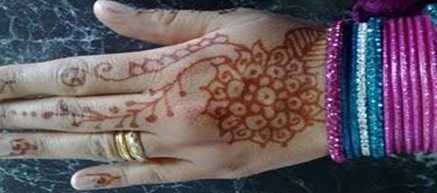 With the approach of Eid-ul-Adha this year, it felt like a good time to reflect on some of the family traditions that we had begun as a family and some of the ones that my husband and I had brought with us from our own childhoods.
With the approach of Eid-ul-Adha this year, it felt like a good time to reflect on some of the family traditions that we had begun as a family and some of the ones that my husband and I had brought with us from our own childhoods.
Eid-ul-Adha is one of two Eids that Muslims celebrate around the world. The first is Eid-ul-Fitr which celebrates the fact that we have fasted for a month during the Muslim month of Ramadan. The second celebrates the Prophet Ibrahim’s (Abraham’s) willingness to sacrifice his beloved son for the Lord who was even more beloved to him and God’s mercy in sparing that son.
As a child in London, the two Eids set the parameters of what celebration meant for us: new clothes, lots of special foods, getting away with misbehaviour because the grown-ups were not allowed to tell us off, going visiting and a visit to the corner shop to spend our Eid money on as many sweets as we could get our hands on. For my husband who grew up in Lahore, Pakistan, Eid meant pretty much the same, just on a far larger scale.
Many years later however, we seem to have lost some of the simplicity around the celebration. Eid seems to have become far more about expensive gifts, special events and parties and perhaps compensating for other things. Growing up as children in a religious Muslim family, my parents discouraged participation in Christmas festivities and we always felt like we were missing out on the fun. As an adult and a religious person, I can see why my parents did not want us to join in the Christmas fun. There is a saying of the Prophet Muhammad (peace be upon him) that:
“Whoever imitates a people is one of them.” (Narrated by Abu Dawood).
As a parent, I wanted to raise my children in my faith, but without banning everything left, right and centre. This being the case, my golden rule is that if I discourage something, I have to replace it with something better. So instead of Christmas in our home, we go the extra mile for Eid. I make cards to distribute and banners and bunting for the house. We put up lights and balloons. We send sweets and a card to each of our children’s classes. I spend the year stashing away gifts for everyone and prizes and goodies for loot bags for our rowdy annual Eid party.
Until this year that is. I realised that there is such a thing as over-compensating. Eid is no longer fun when it becomes too much work and the expense becomes a burden. Islam encourages simplicity and thoughtfulness and so this year I have decided to focus not on spending lots of money to make Eid enjoyable, but to spend my time to recreate some of our childhood traditions and to enjoy some of the traditions we have created with our children.
As the Islamic calendar is lunar, a holiday starts the evening before, so our Eid will start in the evening and run to the next evening. I will spend the evening trying to recreate my mother-in-law’s famous rice pudding which she cooks for hours for my husband. I will call everyone I know to wish them “Eid Mubarak” (blessed Eid). I will pop over to my Mum’s so that I, my daughter and my sisters can decorate our hands with henna. After we have put the kids to bed, my husband and I will go for a stroll so that he can buy me bangles to match my new clothes (it is traditional in Lahore for men to buy their wives gifts on Eid night and particularly colourful bangles). I will get up early the next day and make cupcakes for the children’s breakfast and vermicelli in milk (a dish called sevaiya) for my husband. While my husband and two little boys go for their Eid prayers in the morning, my daughter and I will glam up. We will have lunch at my Mum’s which is everyone’s favourite part of the day and then go to visit family and friends while the children watch cartoons with an indulgent aunty watching over them. I will leave the kids with their aunty and spend the afternoon with my husband cooking for the whole extended clan who are invited for the evening meal. Finally, I’ll sit down to my evening meal and relax while everyone else clears everything away.
That is the plan anyway. The kids have asked how many gifts they are getting and on being told one each, they have been looking a bit dubious. I am hoping that we make the day so much fun that they don’t mind too much about the number of “things” they receive. I also hope to remind them why we celebrate – the emphasis on the willingness to make great sacrifices and the love and mercy between each of us and Al-Wadud (the Most Loving – one of the attributes Muslims perceive God through). A day of celebration is wonderful when we have family, good food, our best clothes and gifts, but it is even more of a pleasure when we imbue our celebrations with a sense of something not just fun but deeply spiritual.
via Eid-ul-Adha Family Traditions | InCultureParent.

Leave a Reply